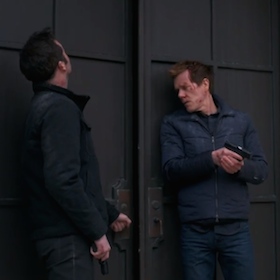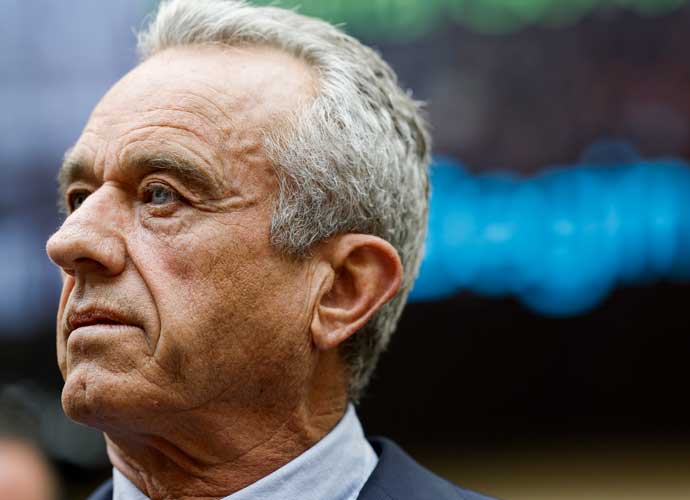"The Following" Season 2 Finale: Joe Carroll And Ryan Hardy Standoff In Ridiculous, Yet Thrilling Episode

3/5
The second improbable season of FOX’s serial killer series came to a close in the way both fans and detractors expected: at a break neck pace that is the definition of efficient storytelling. Every act shifted the tale from one genre staple to another: the standoff, the renegade hero, the unlikely team-up, sprays of bullets that only hit their mark and are only effective when the plot requires it. And “Forgive” gave a sense of continuous climax that often distracts the viewer from meditating on the ridiculous nature of the proceedings.
The Korban cult that dominated much of the middle of the season is absent here, a victim of the holy war Joe Carroll (James Purefoy) waged against, well, everybody. This is a shame as the Eyes Wide Shut inspired masks combined with the nostalgic, psychedelic color palette recalled the Manson-era cult paranoia that pervaded most of America in the late 60s, and added a great deal of creepiness the show has had difficulties in maintaining. Instead, the series refocused on what always worked regardless of the story: the conflict between Purefoy’s Joe Carroll and Kevin Bacon’s put upon anti-hero Ryan Hardy.
After a Jack Bauer-like kidnapping of Carroll from the ever more impotent FBI, the episode transitions into a character study of two arch-enemies that one might expect in the pages of a comic book, yet plays well on screen regardless. “We’re cut from the same cloth,” Carroll moralizes. And while that’s always been obvious to us, to hear the characters admit, acknowledge and accept this not only displays the great acting skills of Bacon and Purefoy, but also a certain level of character growth that network shows usually eschew.
In keeping with its elegiac tone, Carroll expounds upon his life and his inevitable death. He discusses this between wry spats of dialogue with Hardy, but also with his ex-wife Claire (Natalie Zea) and the psychopathic twins Mark and Luke (both played by Sam Underwood, who has made a career playing pasty looking creeps). It’s here, in this bizarre dinner scene, that the show devolves into its usual absurdity, but it’s here that series creator and showrunner Kevin Williamson manages to tie in the themes with the episode title – “Forgive” – while also embracing the show’s schlocky tendencies. There’s just enough of a wink to the viewer saying, “We know, but it’s a fine ride, isn’t it?” It’s simply up to the viewer if they wish to laugh with the show or at it.
It’s worth noting that The Following’s spiritual sister series, Hannibal which airs on NBC and is helmed by Bryan Fuller, also deals heavily in serial killers and an unlikely “elevated reality.” Whereas The Following chooses a speedy action-oriented plot, Hannibal is more methodical, and critics tend to be much kinder to the murder-art producing yet unpretentious Dr. Lecter than they are to the blatant and smug Joe Carroll. However, as both shows become increasingly serialized in both their plotting and in their character arcs, viewers seem to scatter.
If it’s one thing The Following knows how to do, it’s how to keep loyal fans watching, even if you’re not sure why. If a reason had to be given, it would likely be to the nature of the spectacle it manages to create—even if the story inevitably is always about cult(s) or serial killers. Therein, of course, lays the problem: what do you do after you’ve exhausted your gimmick like Dexter and Homeland did? But that’s a problem for season 3.
The score for “Forgive” comes out to a score relative to the series itself: three out of five stars. There’s something undeniably watchable about spectacles, especially when in a shortened season, it doesn’t overstay its welcome. Come for the Bacon, stay for the fun.
RELATED ARTICLES
Get the most-revealing celebrity conversations with the uInterview podcast!







Leave a comment